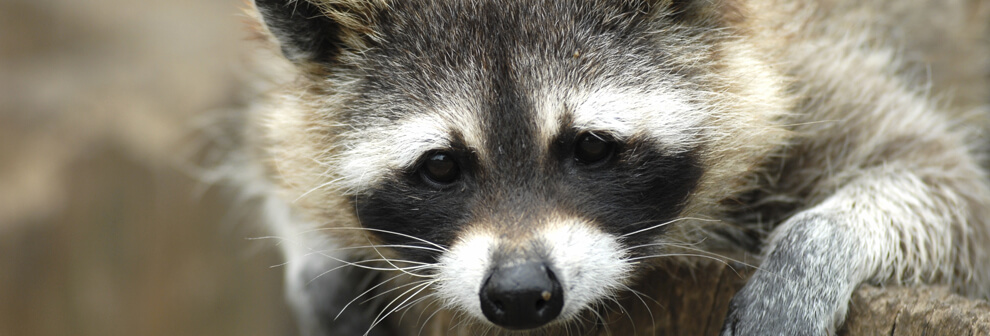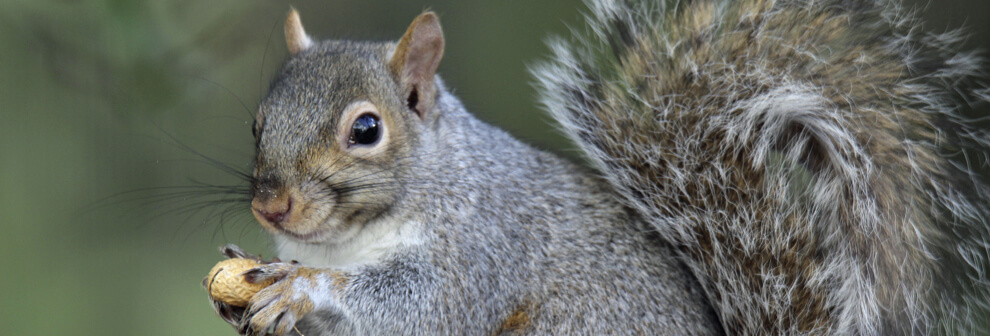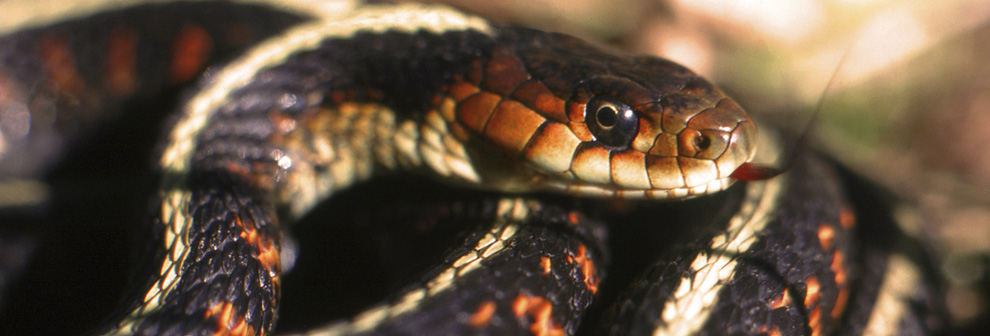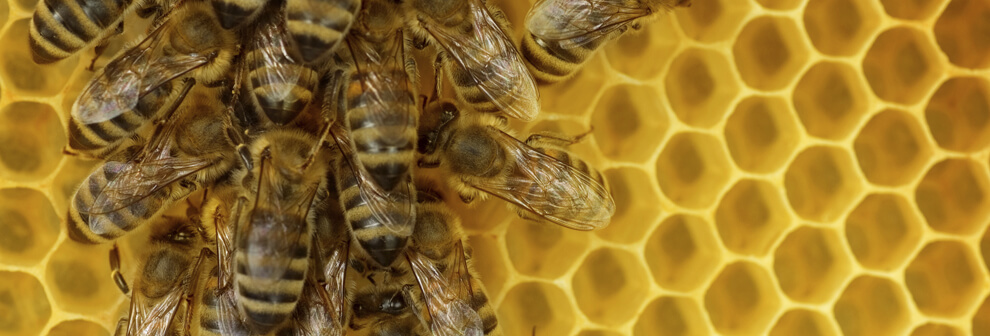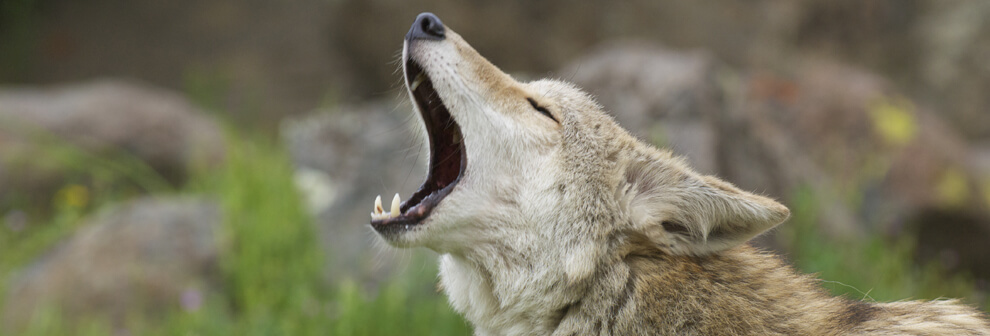Raccoon: Procyon lotor
Raccoons are very distinctive mammals with their black mask and furry ringed tail. Adult raccoons generally weigh between eight and 20 pounds and have a body length of 16 to 28 inches. They are omnivorous and excellent climbers with their dexterous fingers. They are nocturnal which means hey are active at night and sleep during the day. Raccoons enter a residential area in search of food and shelter. Once invaded your house Raccoon Removal becomes important, as they can damage your property.
Caution: If you see a raccoon active during the day, DO NOT approach it, as it can be extremely dangerous. Call a professional immediately!
How, When and Why They Become a Nuisance Pest
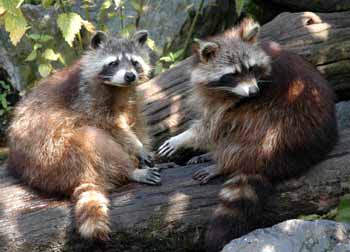
Damage and Risk from Their Presence
Typically, raccoons come during the early spring when the females are pregnant. Females have learned that human dwellings are a great place to raise their young. They will destroy soffits, tear off shingles, remove siding and chimney caps and take off mushroom vent caps just to gain access to your home. Once inside, they will destroy insulation and wires to modify your house to their liking. Loose-fill insulation will become matted and compressed, allowing heated air to escape into the attic in the winter, while hot air can enter the home during the summertime.
Raccoon droppings pose another threat altogether, as they may contain raccoon roundworm, a parasitic worm. Treat raccoon feces as biohazardous material and make sure to disinfect and deodorize the area as well.
Wildlife Nuisance Removal
If raccoons are an outside-only nuisance, habitat modification may be possible without the actual capture and removal of the animals. To do so, bring in all pet foods at night and keep garbage in trash cans (preferably metal) that can be locked or secured. In gardens, the use of electric fences may help keep your fruits and vegetables safe. In this scenario, raccoon removal should be a last resort.
If raccoons are inside of your home, raccoon trapping, removal and exclusion are the only options. First, raccoons must be removed; only then can all entrance points be sealed. After the raccoons are removed, the feces should be thoroughly cleaned up.
Please contact an Atlanta raccoon removal expert before attempting control on your own.

